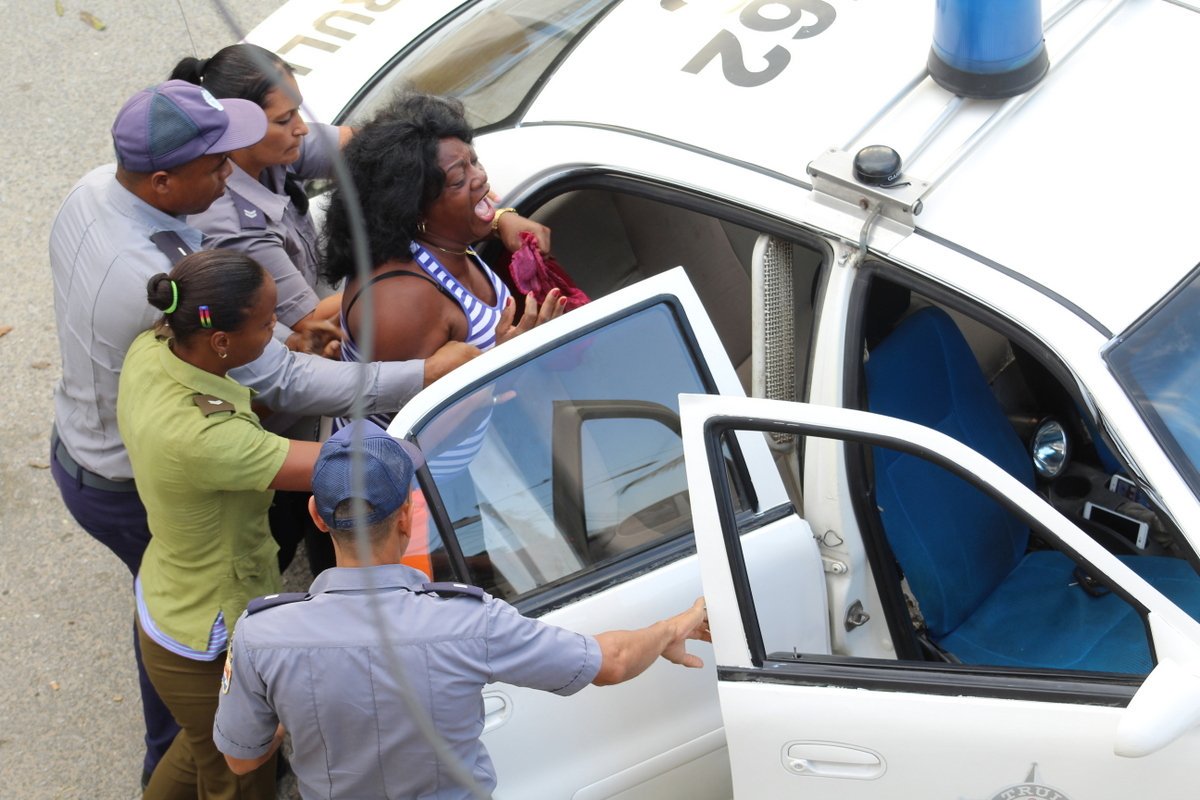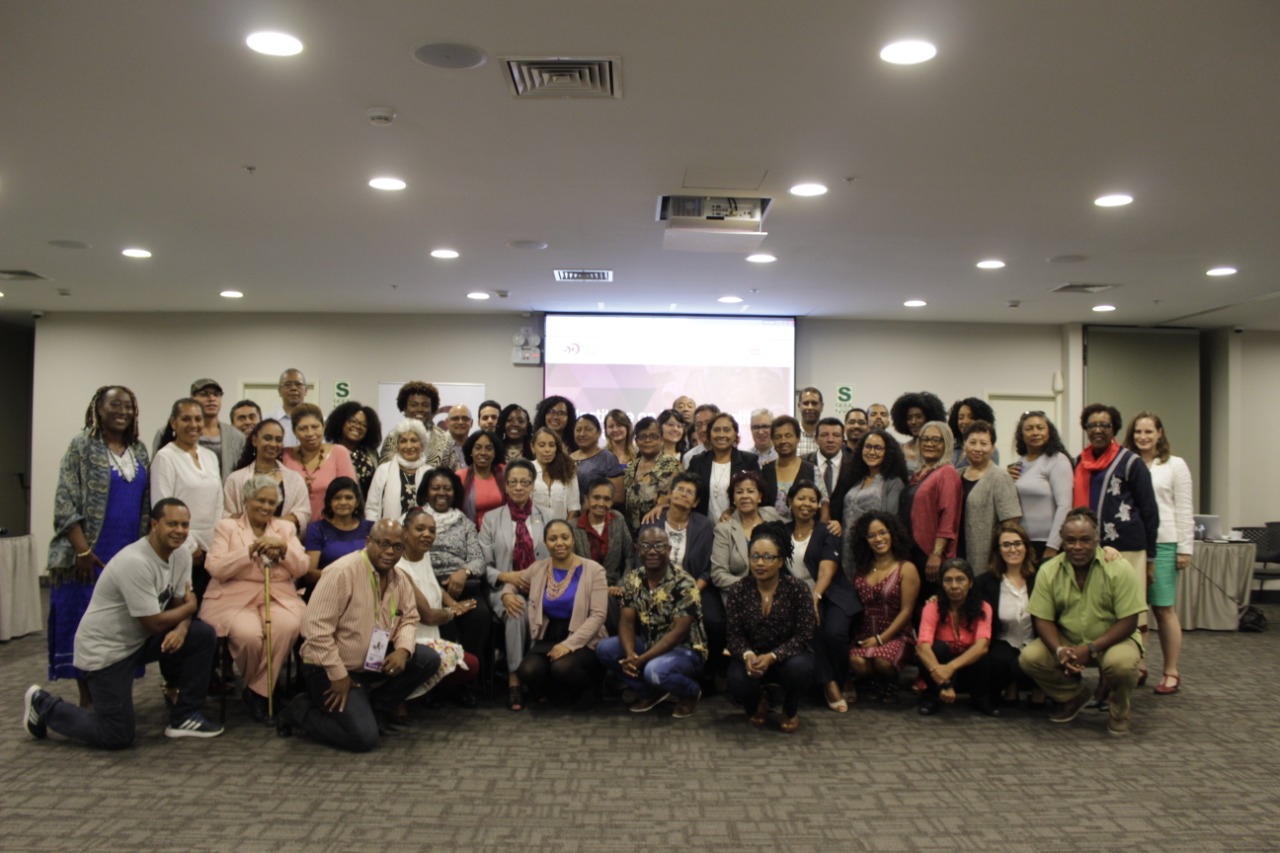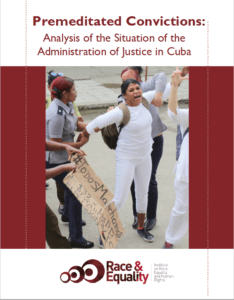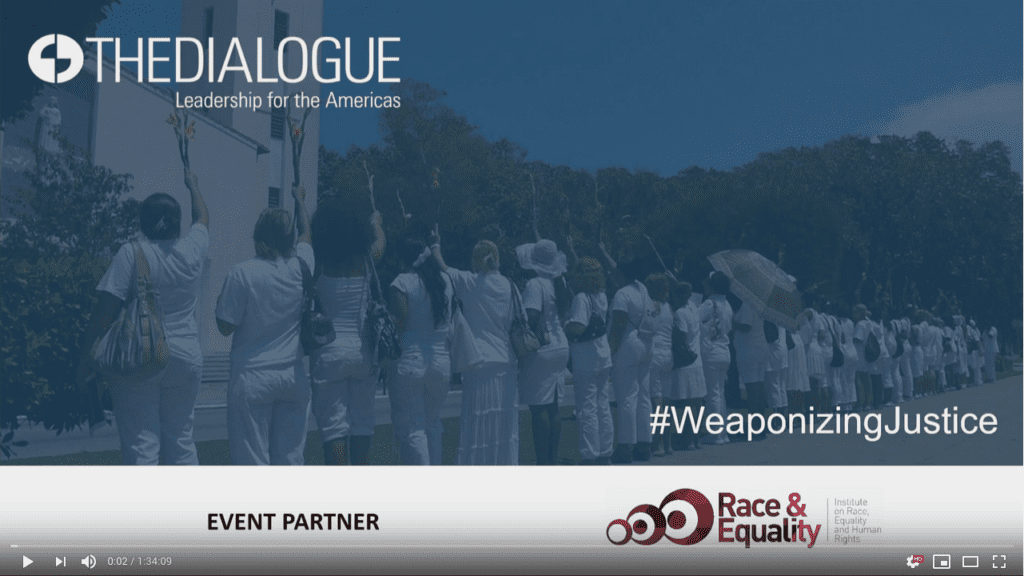Race and Equality: “The cuban State uses its penal code to criminalize voices that speak out against the regime”
In its most recent report, the human rights organization asserts that Cuban laws lack the necessary protections to ensure respect for due process and other human rights of persons accused of crimes. The guarantees that do exist are not respected by the authorities in cases of independent activists. As a part of the event “Weaponizing […]

In its most recent report, the human rights organization asserts that Cuban laws lack the necessary protections to ensure respect for due process and other human rights of persons accused of crimes. The guarantees that do exist are not respected by the authorities in cases of independent activists.
As a part of the event “Weaponizing Justice: Rule of Law and Cuba’s New Constitution” that took place Wednesday, September 11 at the Inter-American Dialogue, the International Institute on Race, Equality and Human Rights (Race and Equality) officially launched its most recent report, entitled “Premeditated Convictions: Analysis of the Situation of the Administration of Justice in Cuba.”
In the report, Race and Equality documents and analyzes the patterns of criminalization, repression, and harassment used by the Cuban state against independent activists, a group that encompasses any activist, human rights defender, political leader, journalist or press outlet that opposes Cuba’s dictatorial policies that deny its citizens their fundamental civil and political rights.
“Although many changes have taken place in Cuba in recent years, the repression of independent activists has not ceased,” the report states, insisting that despite the adoption of a new constitution and the first non-Castro president in nearly sixty years, persecution and violence against the opposition continue, aided by laws that criminalize civil society activities.
Our investigation allowed us to document and analyze the government’s actions in criminal proceedings, and how the government uses the Penal Code and other laws to criminalize the work of the opposition,” explained Caitlin Kelly, an attorney and Program Officer at Race and Equality.
The report investigates cases of repression against activists by state authorities, to describe and explain the Cuban government’s behavior and to establish a pattern of systematic violation of Cubans’ rights to freedom of expression, association and due process in court. The case of Dr. Eduardo Cardet is highlighted in the report as an example of the violations that occur in every stage of the criminal process. These abuses aall violate Cuba’s international human rights commitments and obligations.
“My brother was detained late at night on November 30, 2016 by several persons in civilian clothing, but they were actually from the political police. These men attacked him in front of his family and friends, beating him from head to toe. He was arrested for no reason, and later they fabricated a case against him for a crime that never happened. My brother will serve his sentence until September 30, he has been released conditionally from prison but he is still serving his sentence.” -Miriam Cardet, sister of political prisoner Eduardo Cardet.
Race and Equality’s investigation found that although some human rights and due process guarantees exist in Cuban law, they are disregarded by authorities when dealing with human rights defenders, activists and independent journalists.
Meanwhile, the state utilizes the Penal Code to criminalize people who express opinions against the government, particularly through the use of vaguely-defined crimes such as “contempt” and “disobedience” or the legal label of “social dangerousness,” all of which can be used to impose lengthy sentences without due process.

“When my brother made his statements after the death of Fidel Castro, he was not in Cuba. They called his wife and told her that it was better for him never to return to Cuba because if he did, he would disappear, and eventually he was violently arrested and held in life-threatening conditions. When they detained him, they kept him ‘disappeared’ for five days, with no medical attention despite the terrible beating he suffered. We could only visit him in a dark hallway; we could see how badly he was doing. His trial was held behind closed doors, where they fabricated crimes and kept him in horrible conditions that continue to affect his health today. -Miriam Cardet
Other findings from the report include violence against activists when they are arrested, the use of travel restrictions to prevent activists from leaving the island and deplorable conditions in jails and prisons.



